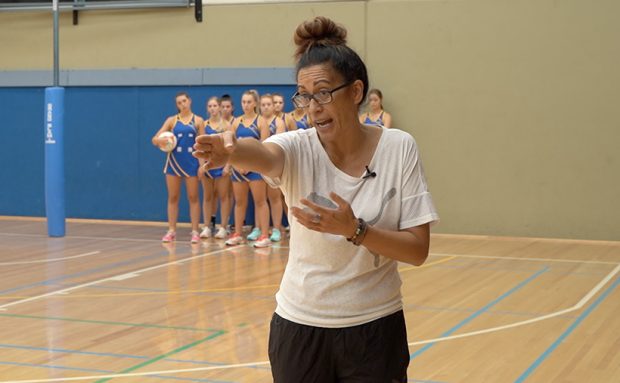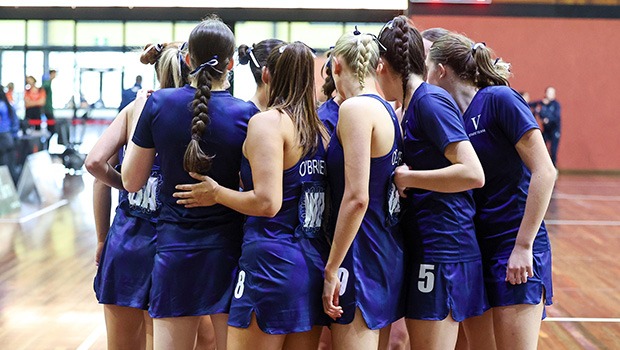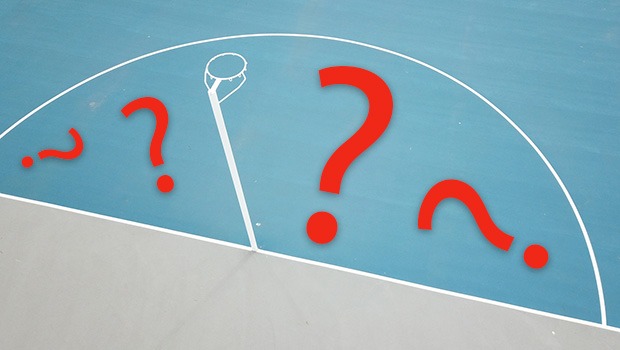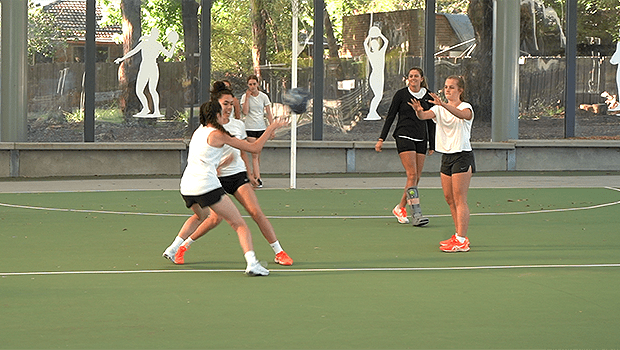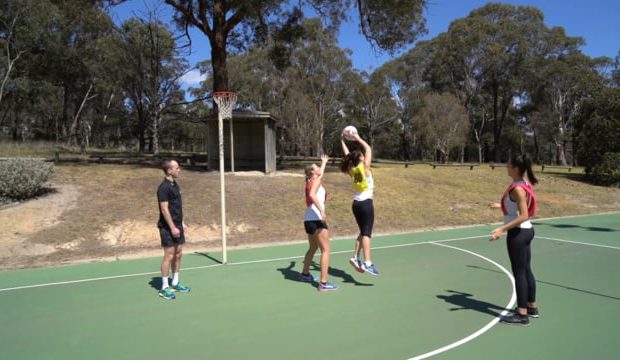The “yips”. Nerves. Throwing bricks. Choking.
Whatever you choose to call it, players missing the mark repeatedly under pressure is something that every coach or team will have to deal with, particularly as finals approach.
The “yips” most commonly play out in a goaler’s game, when they go through a patch where they lose their shooting form and accuracy. But midcourters and defenders can get the “yips” too.
For midcourters, it might present as an attacker who should be turning and immediately delivering that next pass to maintain the team’s flow, but instead hesitates and second guesses themselves.
400+ DRILLS: SIGN UP NOW TO ACCESS ALL OF OUR VIDEOS!
For defenders, it could be a lack of risk-taking by being stuck on the body of a player rather than being out hunting, or being half way through a hunt and pulling out, or attempting to intercept half-heartedly.
Regardless of which position, the “yips” can last for a few short minutes, or for multiple weeks.
So how do we get our players free of the “yips”? Elite coach and former Australian Men’s team captain Heath Brown has the following tips for coaches to help a player out of their rut.
1. Modify your sideline reaction
We’ve all been guilty of blowing a fuse on the sideline as coaches, and you can bet the shooter who missed a shot can see every eye roll, hand flip and clipboard throw. Take yourself emotionally out of the game and watch your tone, your words and your body language, regardless of how frustrated you might be.
2. Reframe failure
Fear of failure is a key reason why athletes get the yips! Games are full of mini failures, and as ex-Diamonds coach Norma Plummer once said: “Everyone makes mistakes, but it’s those who treat them with a vengeance that will win”.
Failures, challenges and obstacles are what define us, so focus your feedback not on the mini failures, but how the players responded.
3. Don’t drag them
Having once been a coach prone to knee jerk reactions, who dragged players to the pine at the first sign of trouble, I realised this is the worst thing you can do. What changed my mind was one of my mentor coaches, who during a grand final elected not to drag a “yippy” shooter because “she wanted to see what she was made of”.
TIPS AND ADVICE: CHECK OUT ALL OF OUR ARTICLES HERE
After a stirring half-time rev up, the player went on and dominated a state league final. Lesson for all: be patient in swinging changes, and ask players to show you what they’re made of.
4. Declutter feedback
“Don’t do this, do this.”
“Do it this way, because your player is doing it that way, and make sure you work with your unit to do that better, unless the opposition does this. Then change to that”.
Confused? In all likelihood, so is your player. So keep your feedback simply, with one or two concise instructions. any more than that you have them in overload, and heading towards the yips. Also consider posing a simple question or two to the player and allow them to come up with the answer.
5. Introduce “clutch” words
Sporting courts and field are perhaps the most intimidating place athletes can face the yips. How do they get out of their own head and focused back on process and technique? Many use “clutch” words as small reminders to reset their thoughts. For example: Breathe. Drive. Feet. Rip.
6. Stop changing techniques
One of my pet hates is seeing coaches materially change a shooting technique because it’s not textbook. Tinker? Yes. Transform? No! It is almost guaranteed to send them into a yip slump. Cath Cox’s technique was far from textbook, but it won many a game and title. If you ARE going to alter a technique significantly, wait until the off-season, so that the player has time to adjust and become confident before introducing it into competition.
7. Other players to step up
The Sharelle McMahon/Eloise Southby shooting combo was so effective because if one player wasn’t firing, the other would quickly step up to fill the breach. Teams would strategise how to get in the head of gun goal attack McMahon, and before long realise that Southby had racked up a dozen goals in a quarter. Teach shooters to read the form of their other shooter, and “wear the pants” when their offsider needs it most.
8. Homecoming
Years ago in a very strong football-netball league, a Victorian representative player who was in a rut was sent back to their home court to remember why they love netball, and reestablish netball as something that should be fun, rather than scary or intimidating. Sometimes there’s nothing quite like hitting your home turf with friends, in order to find the love again!
9. What Liz said
Finals is where the “yips” can be most on show. Players can have nerves of steel all season, and then find themselves shaky when the premiership is in sight. I once asked Liz Ellis for a pump-up message for one of my teams, and her closing line was “finals are about doing the ordinary in extraordinary circumstances”. I use this every finals campaign, as it’s so simple. Take it back to basics, and focus on doing the little things well.
Heath Brown is a former Australian and Victorian Men’s team captain, and an elite coach in the NSW and Victorian state league competitions.
